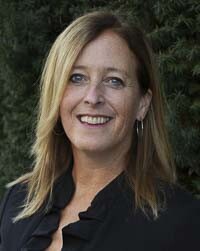
Elizabeth New (Hovde) believes we need more informed consumers of health care to have a shot at cost-containment in the system
Elizabeth New (Hovde)
Washington Policy Center
Medicare is a big government program. It’s detailed. It’s confusing. And people in our state actually volunteer to deal with it for people other than themselves! Rockstars.

They’re called SHIBA volunteers (Statewide Health Insurance Benefits Advisors). Gov. Jay Inslee just proclaimed May 19-25 “SHIBA Volunteer Recognition Week.”
Tim Smolen, SHIBA prgoram manager for the Washington state Office of the Insurance Commissioner (OIC), confirmed for me these volunteers are unpaid. They are trained at no cost to them. (That’s good. A lot of people would not take on the task of helping strangers navigate Medicare for pay.)
A state press release says SHIBA started as a small volunteer effort in Mount Vernon. (It must have been the tulips.) It is now celebrating its 45th anniversary, after growing into one of the “nation’s most popular senior customer assistance programs.”
In 1979, the OIC officially endorsed SHIBA and established the program as a statewide effort. “In 1990, it inspired the federal government to create the national State Health Insurance Assistance Programs. The federal program provides seniors with health insurance assistance in all 50 states plus Puerto Rico, Guam, the District of Columbia and the U.S. Virgin Islands.”
“Many of the people who contact us are struggling to understand their Medicare options and feel overwhelmed,” Smolen said. “It’s empowering to our volunteers — who are also Medicare-age — to feel they made a difference in someone’s life. It’s a win for both parties.”
Government-sponsored health care, and private health care, can be overwhelming. Consulting with volunteers in the know make it less so.
We need more informed consumers of health care to have a shot at cost-containment in the system. Knowledge is power, and I am thankful for the people explaining what they know to those who seek it.
Elizabeth New (Hovde) is a policy analyst and the director of the Centers for Health Care and Worker Rights at the Washington Policy Center. She is a Clark County resident.
Also read:
- Letter: ‘There will be consequences’Hazel Dell resident Bob Zak criticizes Democratic lawmakers for advancing ESSB 5181, arguing it undermines parental rights and defies biblical principles.
- Op-Ed: La Center Schools — Committed to families and their childrenIn a public letter, the La Center School Board and Superintendent Peter Rosenkranz affirm their commitment to supporting families and honoring both state law and community values amid state-level scrutiny.
- Letter: Mayor blames others on homelessness problem in Vancouver while she has enabled a lawless encampment zoneVancouver resident Peter Bracchi urges city leaders to enforce laws and end permissive policies that have allowed unsafe encampments to overrun public spaces near the Share House.
- Letter: ‘Look it up for yourself’Camas resident Anna Miller encourages skeptics of Elon Musk’s claims about government waste to do their own research using official resources.
- Opinion: Defending the indefensibleNancy Churchill argues that Washington’s lawsuit against a sheriff cooperating with ICE reveals a deeper political agenda that puts public safety at risk.










